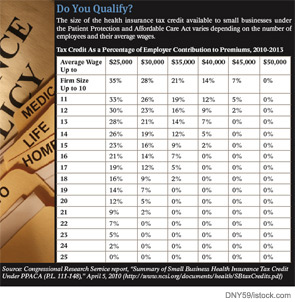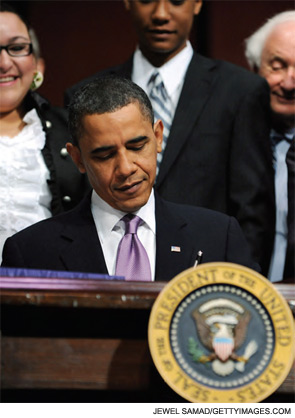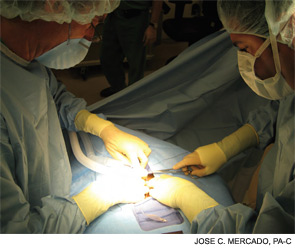When Rahul Shah, MD, then a pediatric otolaryngologist at Children’s Hospital in Boston, and several colleagues first undertook a survey of otolaryngologists’ reactions to adverse events in 2004, they provided a blank form for respondents to write about what had happened. In the more than 200 responses they received, Dr. Shah and his colleagues read an outpouring of emotion.

Health Reform Perks: Employer tax credits could benefit your practice
By now, you’re probably well versed in the clinical aspects of the health reform bill signed by President Obama in March. But what you may not know is that the bill includes a section that could benefit otolaryngologists and other physicians in their role as employers.

Harvard Economist Offers Health Reform Solution: Says change must focus on cost containment
Dr. Roberts used numbers to illustrate his point during a presentation at the Annual Meeting of the American Broncho-Esophagological Association, part of the Combined Otolaryngological Spring Meetings held here April 28-May 2.

Who’s Covering Your Tail? The ins and outs of professional liability insurance
Are you looking to switch medical practices? Are you in the market to purchase a professional malpractice insurance policy? Are you planning to retire soon? If you answered ‘yes’ to any of these questions, you will likely confront the concept of “tail” insurance.

Not So Fast: New quality provisions aren’t ready for implementation, medical groups say
The new health system reform law includes a number of quality provisions that physician organizations say are not ready for primetime and won’t be ready in the time frame established by Congress.
A Better Way to Implement EMRs: Why one-size-fits-all won’t work
I have been a strong advocate of electronic medical records (EMRs) for almost a decade. In fact, I used the phrases “It is the silver bullet for health care reform infrastructure” and “It is the cornerstone for health care reform infrastructure” to describe EMR plans when President Obama was campaigning. However, technology, like fire, can warm your house or burn it down, cook your food or kill you. Likewise, the wrong EMR will escalate inefficiency and raise health care costs. The wrong mandates or the wrong incentives have the potential to paralyze the day-to-day practice of medicine.

Digital Dilemma: Physicians oppose EHR requirements
The federal government’s proposed rule establishing incentive payments for physicians who “meaningfully use” electronic health records (EHRs) is too onerous and would discourage physicians from participating, some otolaryngologists say.

Canal Wall Up vs. Canal Wall Down: Symptom of a greater need?
This issue of ENT Today includes an article on the debate over canal-wall-up (CWU) versus canal-wall-down (CWD) tympanomastoidectomy (p. 5). I remember hearing the same arguments when I was a resident at UCLA, which was also the last time I drilled a mastoid bone; my practice focused on head and neck surgery and pediatric otolaryngology. Over the past 32 years, Drs. Bruce Gantz, Rick Chole (two of my otology colleagues on the Board of Otolaryngology), and other otologist friends have suffered through my semi-tongue-in-cheek comments on why otologists can’t agree on which procedure is better. Although the technology used in both procedures has evolved, the final product of the two procedures, a dry, safe ear, is, as best I can tell, the same as it was when I was a resident. I have been told that one of the main factors considered in the decision regarding which procedure to perform is where the otologist trained.

Health Reform to Insure 32 Million: Are you ready for them?
The new health system reform law is expected to reduce the number of uninsured Americans by 32 million people, and that means more paying patients for physician practices. Many doctors, however, worry that the law’s lack of Medicare payment reform and medical malpractice caps will exacerbate a looming physician shortage. This raises questions about how successful the law will be in increasing health care access.

A Partner in the Business: Practices see mid-level providers as valuable additions
When Winston C. Vaughan, MD, told his Stanford University patients he was leaving academia to establish a private group practice, they had one question: “Are you taking Kathleen with you?” Their concern attests to the integral role that Kathleen Low, RN, NP, fills as a patient-care provider in Dr. Vaughan’s otolaryngology practice.
- « Previous Page
- 1
- …
- 27
- 28
- 29
- 30
- 31
- …
- 50
- Next Page »